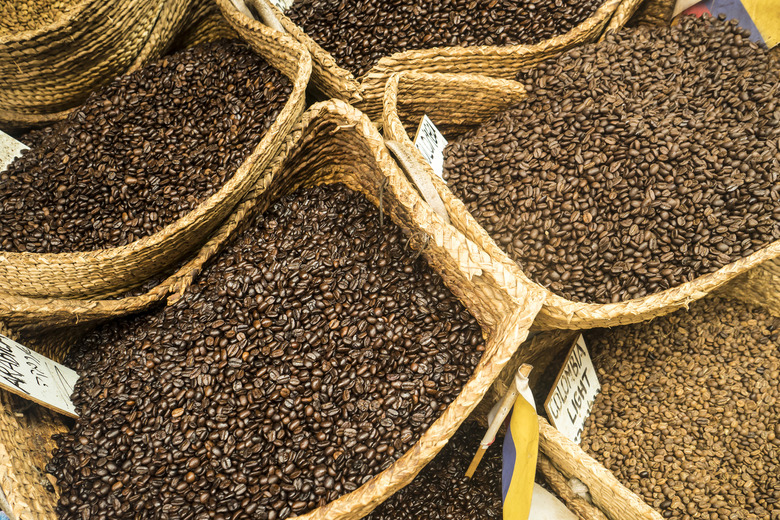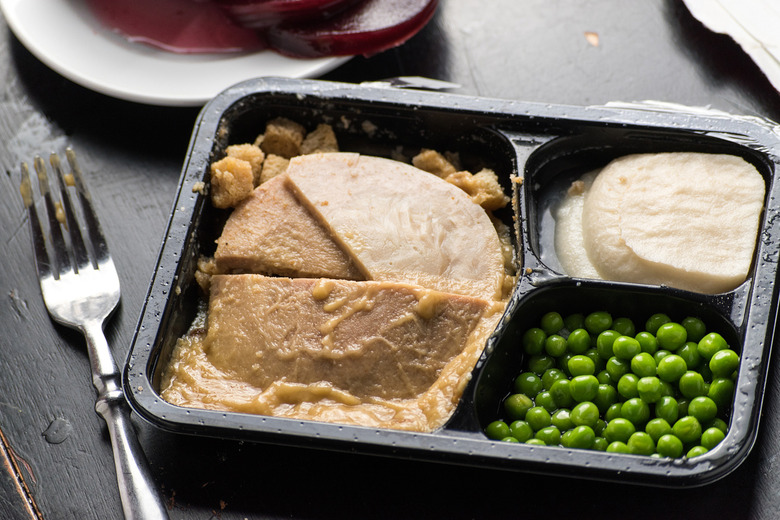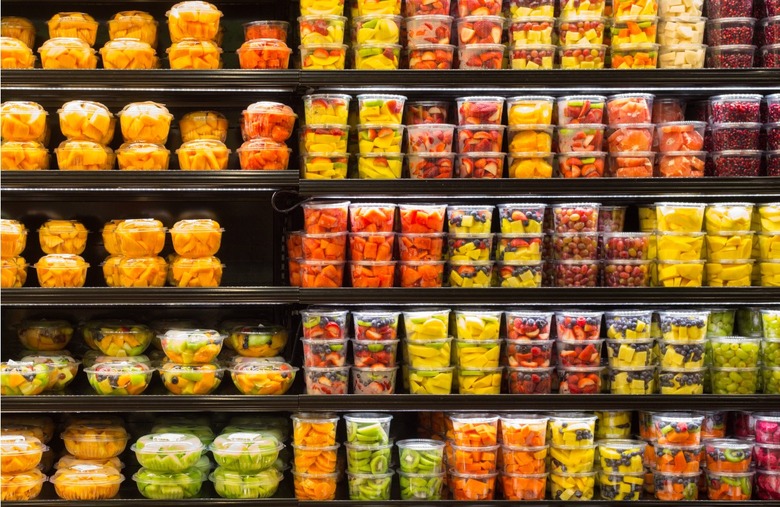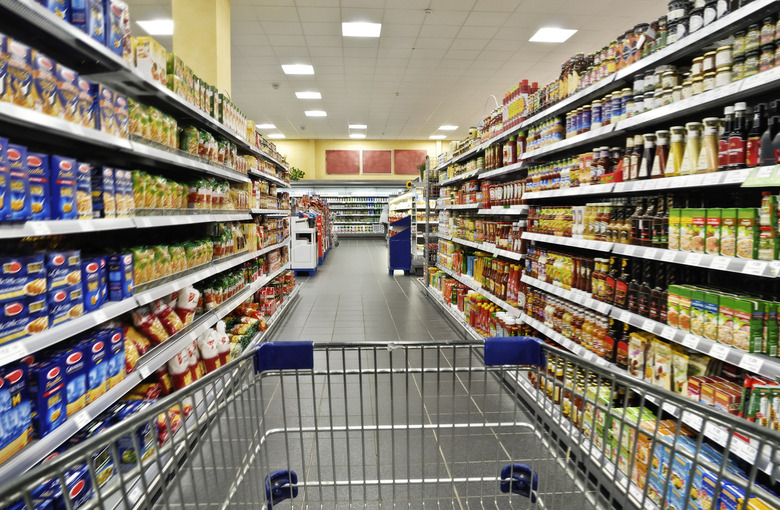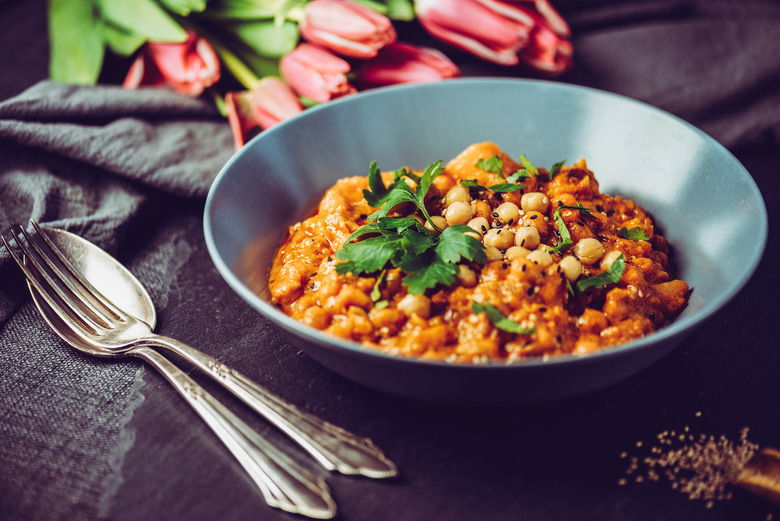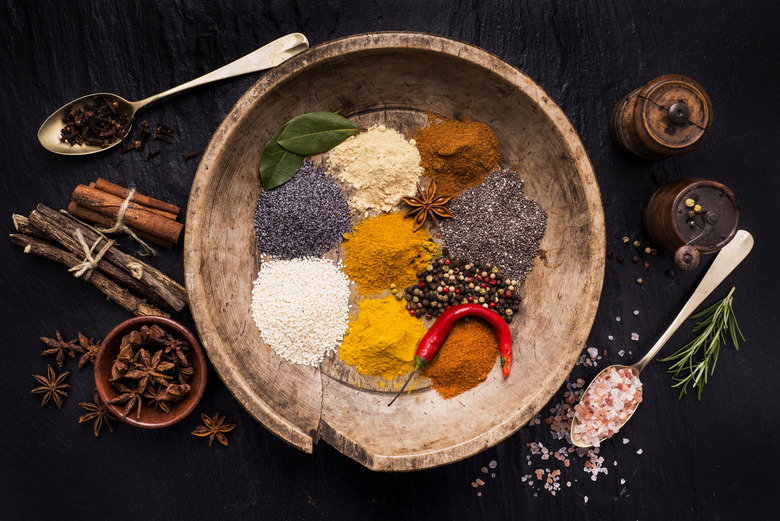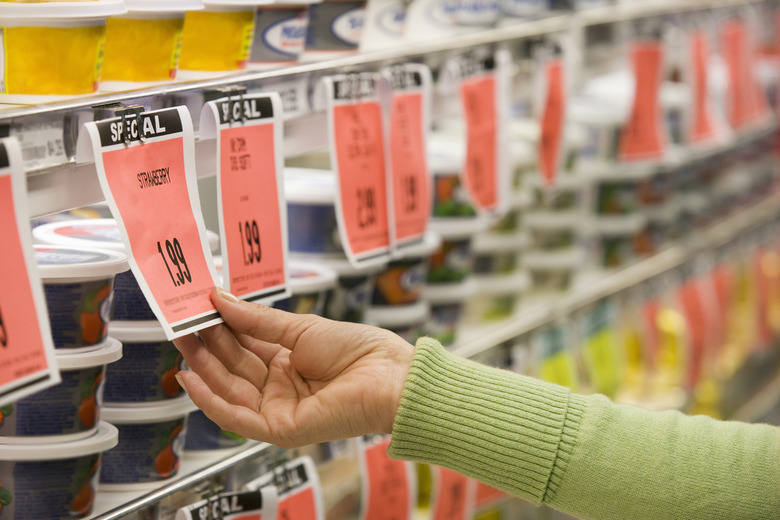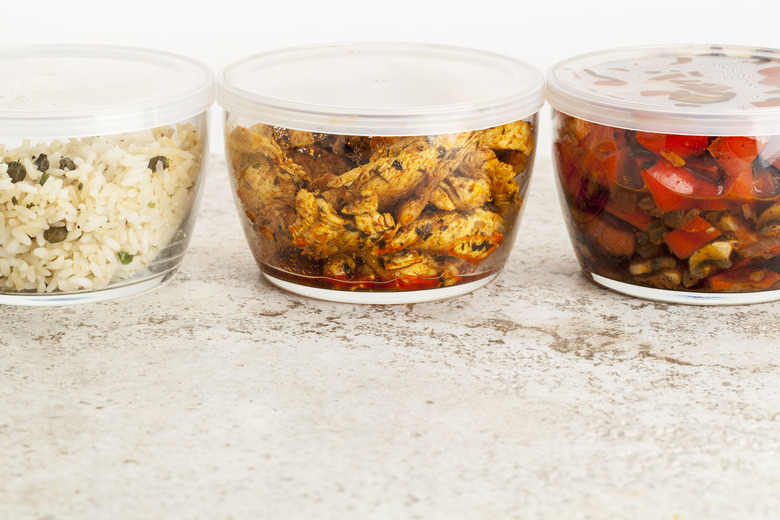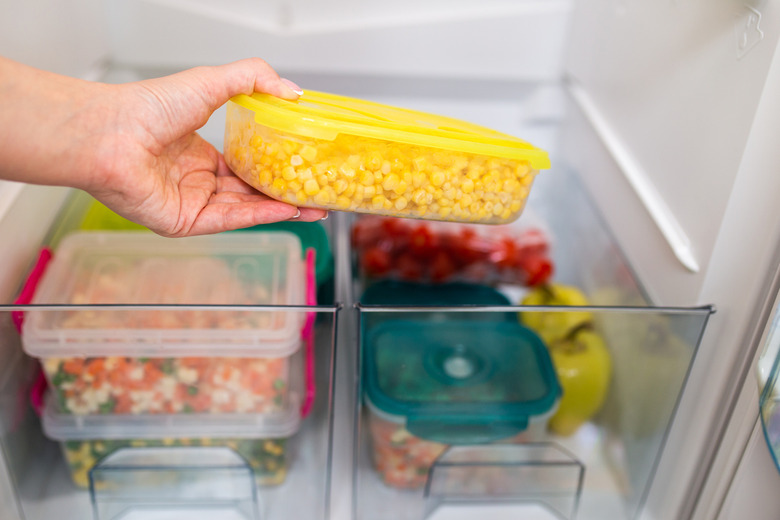How To Cut Your Grocery Bill In Half
Budgeting for groceries is important, but you shouldn't find yourself breaking out in a cold sweat over your weekly shopping choices. If you are aiming to save some money on your next trip to the store and find that you often struggle with your grocery budget, there's no need to despair. There are some pretty simple ways to cut down on your food budget yet still fill your cart with delicious and nutritious items.
There are a lot of ways grocery stores try to trick you into spending more money, but with these hacks, you can become a savvy shopper who sails through those racetrack aisles with confidence and aplomb, full of the knowledge that you're saving money without sacrificing the quality your basket's contents.
Buy from the bulk bins
Buying items from the bulk section in your grocery store is not just one of the best ways to be more eco-friendly while you shop, it's also a great way to save money. Bulk-bin items like coffee, grains, oats, nuts and spices tend to be cheaper per unit. Another benefit of buying from the bulk bins is that you can buy as much or as little as you need, which helps to avoid food waste, a hidden grocery cost.
Avoid frozen dinners
Prepared foods are No. 1 on the list of grocery items you need to stop buying. While convenient, ready-to-microwave frozen dinners tend to be less healthy than raw ingredients and are much more expensive.
Avoid pre-cut fruits and vegetables
Buying a container of sliced watermelon, cut up bell peppers or peeled garlic may seem super convenient at first, but if you're looking to save money, you're better off prepping and cutting everything yourself at home. Taking just a few extra seconds can take quite the load off your wallet.
Be flexible with your ingredients
If, in the middle of your shopping, you suddenly discover that an item on your list is more expensive than expected, make a budget-friendly swap. For example, if broccoli is on sale but the recipe calls for cauliflower, buy broccoli instead. Other easy, budget-friendly swaps include frozen fruits and vegetables instead of fresh (they're just as healthy) or domestic cheeses instead of fancy, imported cheese.
Buy frozen produce
A shopping basket full of fresh vegetables and fruit can be satisfying, but it can also be ridiculously expensive. Sometimes it is actually better to grab a bag from the frozen aisle. If that big carton of strawberries you had your heart set on seems a bit too expensive, check out the price of frozen berries, and you may be pleasantly surprised. Buying frozen produce can also cut down on food waste. If you know you'll never finish that giant head of cauliflower before it goes bad, then it's handy to have a bag stashed in the freezer.
Don’t buy big name brands
If you are struggling to decide between a store brand product and a big brand, always go with the in-house item. It's almost certainly the same thing and will save you lots of money in the long run.
Double check the price per unit
Compare the unit price of similar items to make sure you're getting the best deal. One might initially seem cheaper, but if the unit size is actually smaller, you're just paying less for less, which isn't really a bargain. Items also tend to get cheaper per ounce when you buy larger quantities. Buying big bottles of olive oil or a bigger bag of rice may cost more upfront, but you'll save money in the long run.
Eat more plant-based proteins
A surefire way to spend less at the grocery store is to buy more plant-based protein and less meat. Just look at the price per unit, and you'll realize your dollar will go a lot further with proteins like chickpeas, tofu and black beans than it would with, say, turkey or beef. Try having Meatless Mondays and make some delicious plant-based recipes instead.
Look out for reduced-price items
Keep your eyes peeled for any daily specials or items with a reduced price. Stores often cut the price of daily items like bread or items with a shorter shelf life, like fish, toward the end of the day. The items are perfectly safe to consume — the store just wants to get rid of them before it has to throw them away. Keep your eyes peeled for stickers marked Manager's Special on perishable items, and you could save big on dairy, meat and healthy prepared foods like hummus.
Make a list before you go to the store
We've all been there — you go to the store, thinking you only need a couple of essentials to get you through the week. Before you know it, you stagger out of the grocery store laden with bursting bags and a receipt a mile long trailing behind you. Make a list before you leave home and stick to it. If you go through the grocery store with a goal in mind, you're much more likely to leave with a basket that is healthy and affordable.
Make your own spice mixes
Instead of spending money for mixes that someone else has put together, combine your own dry ingredients or spices and make your own blends. For instance, if you already have chili powder, paprika, cumin, garlic powder, cayenne, onion powder, salt and pepper on hand, there's no need to buy packaged fajita seasoning. An added bonus of making your own spice blends is that you can tailor the flavor more to your personal tastes.
Plan meals ahead of time
Plan what you're going to be cooking before you go to the store, and you'll cut down on those random, midweek shopping trips, as well as the quantity you buy. Make a list according to the recipes you intend to use so that you buy only what you're going to use immediately, and you'll also find that you waste fewer ingredients overall.
Don’t just buy it because it’s on sale
It definitely makes sense to buy things when they're on sale, and if you're trying to stick to your budget, making the most of sales can really help. But it's important not to buy groceries simply because they're marked down. Before you jauntily throw any good deal in your shopping cart, ask yourself whether you would buy the item if it weren't on sale and if it's something that can replace a more expensive item on your shopping list. If not, it's better left on the shelf.
Stick to seasonal produce
Seasonal produce tends to be cheaper, and you can find some great local bargains, so stick to fresh corn on the cob during the summer and asparagus in the spring. It may be obvious, but fruit and vegetables simply taste better when they're in season, so you should buy seasonally anyway.
Learn to love leftovers
So much money is wasted because people do not eat their leftovers. Leftovers don't have the best reputation, but with a little bit of thought, they can become delicious meals in their own right. Turn last night's roast chicken into tomorrow's soup and save those precious pennies.
Store food properly at home
Last but not least, a great way to save money on your grocery spending is to properly store the stuff you buy. It's important to know which groceries have a long shelf life and which don't, so that you can make sure your food won't go bad before you use it. Wasted food is also wasted money, so you definitely want to make sure you're not storing your groceries all wrong.
More from The Daily Meal:
25 Grocery Items You Should Stop Buying
Genius Hacks Every Costco Shopper Should Know
12 Ways Store-Bought Produce Can Make You Sick
The Craziest Grocery Store Amenities Across America
Grocery Items That Are Worth the Splurge

